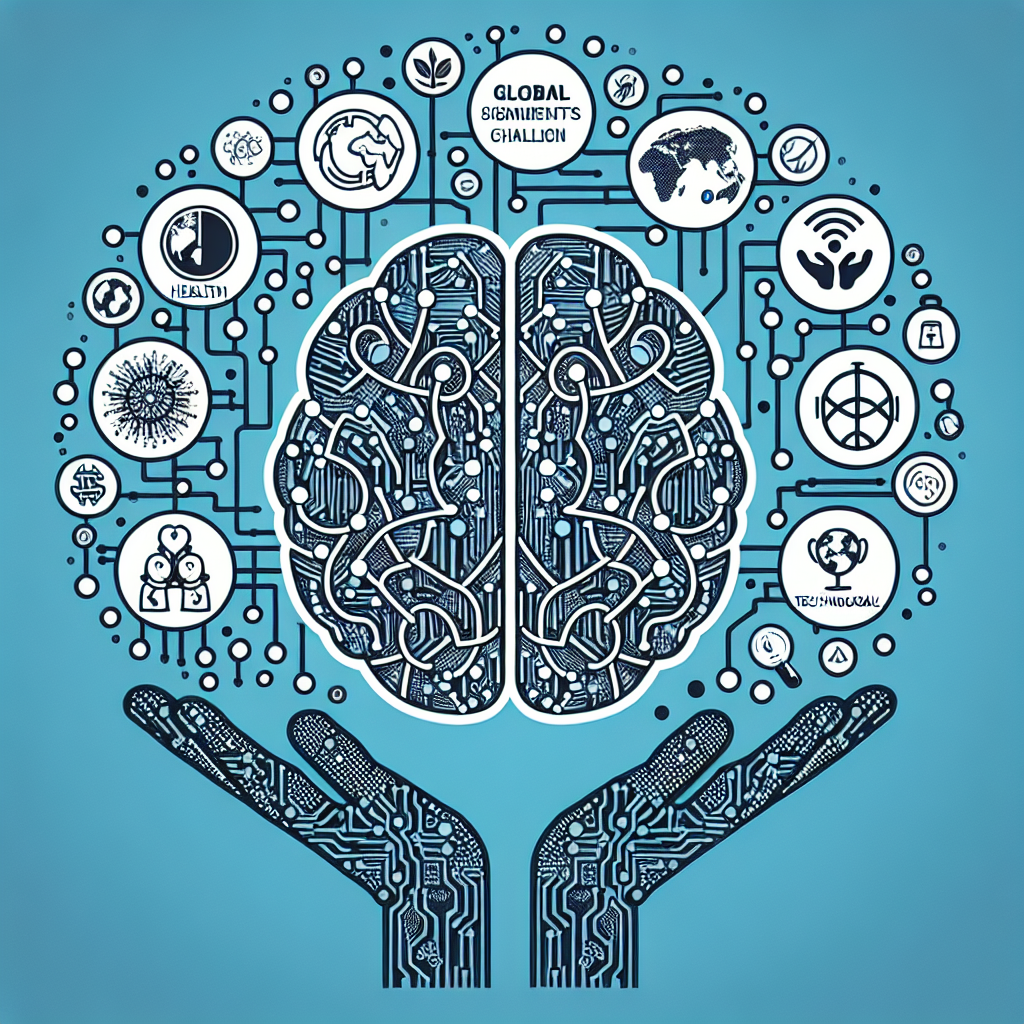Artificial General Intelligence (AGI) is a term that refers to a type of artificial intelligence that possesses the ability to understand, learn, and apply knowledge in a way that is similar to human intelligence. Unlike narrow AI systems, which are designed to perform specific tasks or solve specific problems, AGI has the potential to think and reason across a wide range of domains, making it a powerful tool for addressing some of the world’s biggest challenges.
AGI has the potential to revolutionize the fields of healthcare, education, transportation, and more by providing solutions to problems that have long eluded human understanding. By leveraging the power of machine learning and deep learning algorithms, AGI systems can analyze vast amounts of data, identify patterns and trends, and make predictions that can help us make better decisions and improve outcomes in a wide range of areas.
One of the key advantages of AGI is its ability to process and analyze information at a speed and scale that far exceeds human capabilities. This can be especially useful in fields such as healthcare, where AGI systems can help doctors diagnose diseases, develop personalized treatment plans, and predict patient outcomes with a level of accuracy that is simply not possible with traditional methods.
In the field of education, AGI can help personalize learning experiences for students, identify areas where individuals may be struggling, and recommend interventions to help them succeed. This can help to bridge the achievement gap and ensure that all students have access to high-quality education, regardless of their background or circumstances.
In transportation, AGI systems can help optimize traffic flow, reduce congestion, and improve safety on our roads. By analyzing real-time data from sensors and cameras, AGI can help to predict traffic patterns, identify potential hazards, and recommend the most efficient routes for drivers, saving time and reducing emissions in the process.
AGI also has the potential to revolutionize the field of environmental conservation by helping us to better understand and address the complex challenges facing our planet. By analyzing data from satellites, drones, and other sources, AGI can help us monitor changes in ecosystems, predict the impact of climate change, and develop strategies for protecting biodiversity and preserving natural resources.
Despite its potential benefits, AGI also raises a number of ethical and societal concerns. For example, there is a fear that AGI systems could become too powerful and potentially pose a threat to humanity if they are not properly controlled. There is also concern about the impact of AGI on the job market, as it has the potential to automate many tasks currently performed by humans, leading to widespread job displacement.
To address these concerns, it is important to develop robust regulations and ethical guidelines for the development and deployment of AGI systems. This includes ensuring that AGI systems are transparent, accountable, and fair, and that they are designed with human values and ethical considerations in mind.
In conclusion, AGI has the potential to revolutionize the way we solve some of the world’s biggest problems by providing us with powerful tools to analyze data, make predictions, and develop solutions that can improve outcomes in a wide range of fields. By harnessing the power of AGI, we can unlock new opportunities for innovation and progress that have the potential to transform our world for the better.
FAQs:
Q: What is the difference between AGI and narrow AI?
A: AGI refers to artificial intelligence systems that have the ability to understand, learn, and apply knowledge across a wide range of domains, similar to human intelligence. Narrow AI, on the other hand, is designed to perform specific tasks or solve specific problems, such as image recognition or natural language processing.
Q: What are some examples of AGI applications?
A: Some examples of potential AGI applications include personalized healthcare, personalized education, traffic optimization, environmental conservation, and more.
Q: What are some of the ethical concerns surrounding AGI?
A: Some of the ethical concerns surrounding AGI include the potential for AGI systems to become too powerful and pose a threat to humanity, as well as the impact of AGI on the job market and concerns about job displacement.
Q: How can we ensure that AGI is developed and deployed in a responsible manner?
A: To ensure that AGI is developed and deployed in a responsible manner, it is important to develop robust regulations and ethical guidelines for the development and deployment of AGI systems. This includes ensuring that AGI systems are transparent, accountable, and fair, and that they are designed with human values and ethical considerations in mind.

